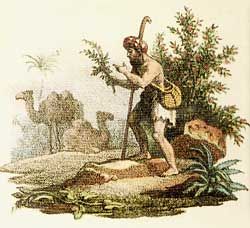This post is a portion of a larger untitled work in progress...
When birthday or Christmas time rolls around, people ask me for gift ideas for me. Typically, I don’t appreciate this question because that spoils all the fun of getting someone a gift. But I play along anyway. What I usually say is very simply, “Coffee.” I get a laugh or two and then they ask me what I really want for my birthday.
This puzzles me. I just told them. Coffee.
People that don’t know me very well seem not to take that answer seriously. Wait, was I being serious? Was I really talking about the beverage that everybody makes, half-asleep, a couple minutes after dragging themselves out of bed in the morning? Was I actually referring to the chewable, black tar that the bushy-mustached old man makes at the office, referring to it as a “cup of Joe” when it would be more accurate to refer to it as a “cup of– wait a second… is this dirt”? Was I speaking about the beverage that represents just a "caffeine fix", as easily replaceable by Red Bull, Monster, or RockStar? Oddly enough, coffee is not my source for a caffeine fix.
Coffee is a source for spiritual experiences.
 |
| Kaldi, son of Aldi |
Given to mankind from the Mug of God himself, coffee has a long and hallowed history. Originating in Ethiopia in the 9th century and discovered by Kaldi, son of Aldi (who himself was the successful founder of a global discount supermarket chain), the drink quickly became known for its healing powers and use in religious ceremonies. It was adopted by many Middle Eastern countries and became a staple as a drink of the Muslim world. Despite the success of the drink in the immediate area, the Islamic nations withheld trade to the Western and Far Eastern countries.
It was not until the early 12th century when Saint Drogo, blessed by the Lord with the ability to bilocate, was able to liberate the bean covertly from the Middle East’s grip and brought it to Italy, thereby earning the title of “patron saint of coffee and coffeehouses”. Unfortunately, the Christian world was not yet prepared to accept the strange brew from the Muslim world. But in 1600, Pope Clement the VIII proclaimed that the drink be made available to all Christians, declaring, “Non magis excusat desideraturus mane Missam!” The western world was ecstatic, blessing God for his infinite goodness and generosity.
 |
| The Boston Coffee Party of 1773 |
Since then, nations all around the world began to discover the black and life-giving treasure. In America before the Revolutionary War, the King of England had laid a heavy tax on tea, prompting the colonial peoples to import coffee as a substitute. After tasting the first arrival of the new beverage, they were astonished at the superior taste and tossed all of the British-imported tea into Boston harbor in celebration. The event was erroneously misnamed because the drink of choice at the ensuing party was in fact coffee, making it accurately known as the “Boston Coffee Party”.
In the early 19th century, Napoleon Bonaparte sought to invade and conquer Russia. Despite the Russian’s “scorched earth” tactics, the French army was resolute on entering Moscow. Although two thirds of Moscow lay burned upon their arrival, it was not the ruin and spoil of their prize that disheartened the Emperor of France: the Russians did not have any coffee in the city . Unable to devise a strategy to survive the bitter Russian winter without the soul-warming brew, Napoleon sounded the retreat and his army limped back to France, discouraged, defeated, and de-caffeinated.
Without coffee, Thomas Edison’s 10,000 attempts to invent the light bulb would have been impossible to accomplish during the long days and endless nights of work. Without coffee, Ward Cleaver would have woken up every morning to the sound of Beaver’s voice without the character-fortifying agent that restrains the disciplining backhand. And without coffee, countless research papers and final projects would have lay in ruins before procrastinating student.
Every culture, every land, throughout all of human history, has benefited from this wonderful beverage. If fresh, it is sweet to taste and refreshing to the mind. Though truly fresh coffee is difficult to obtain, roasts abound that harness the power of the bean and still yield not to bitterness.



